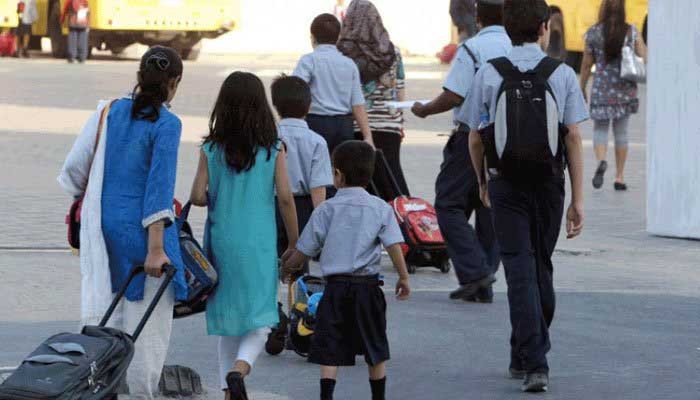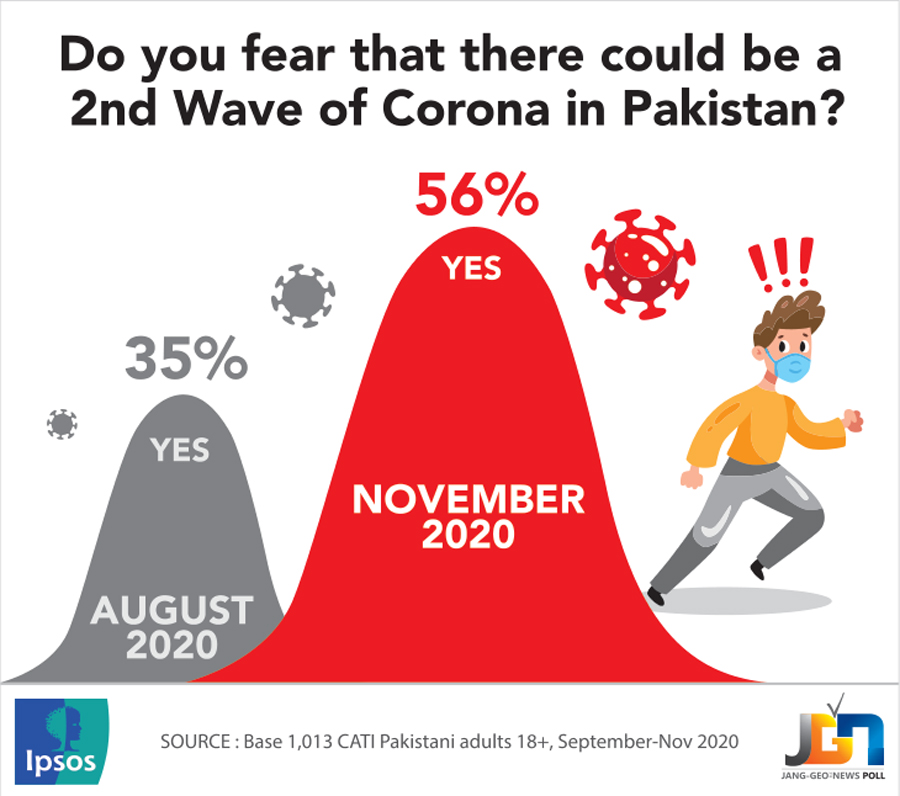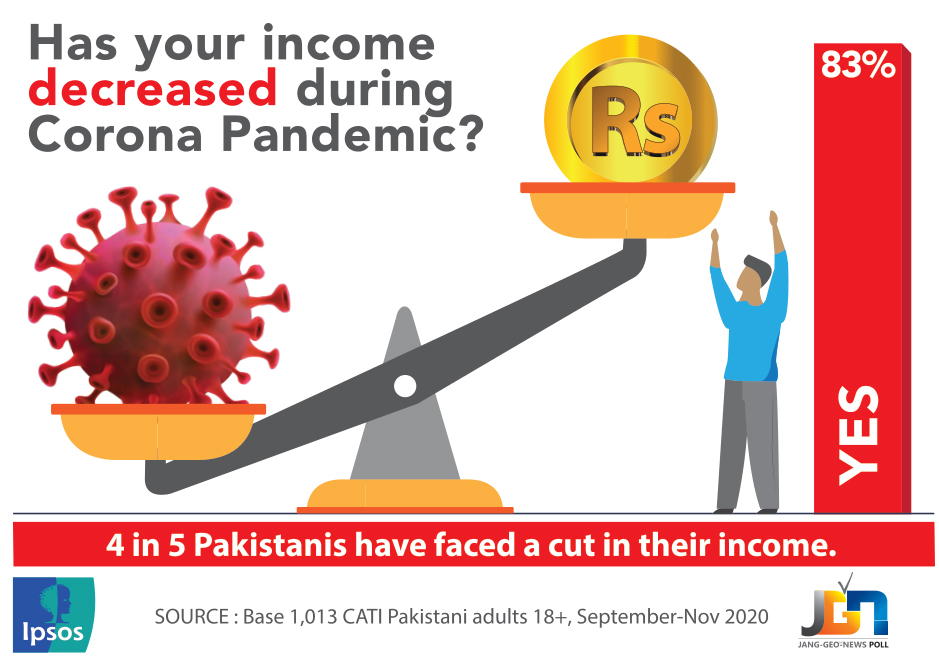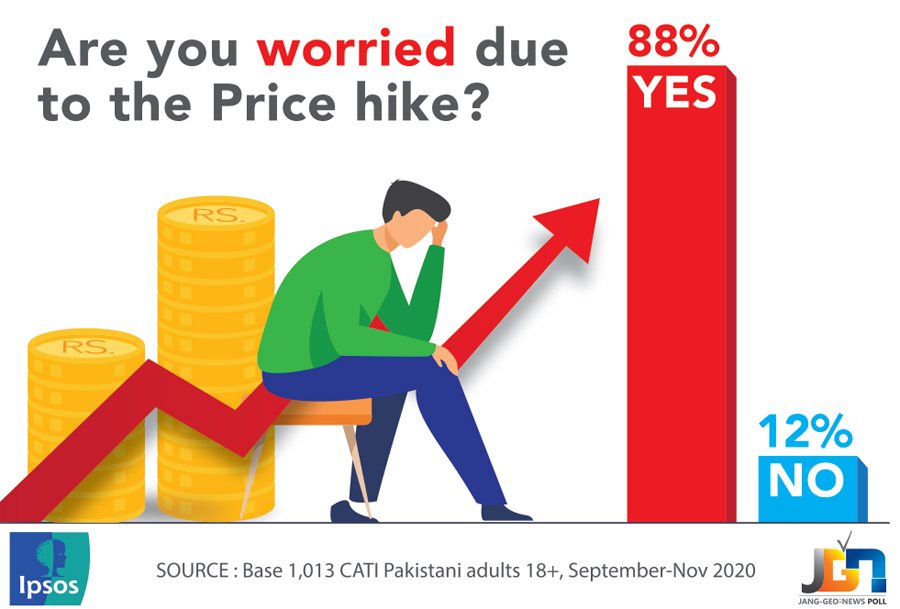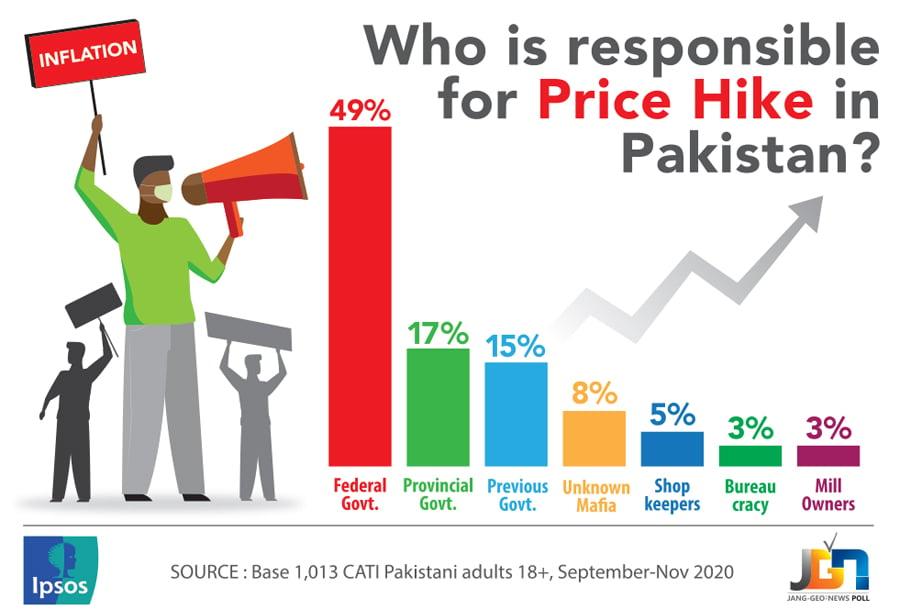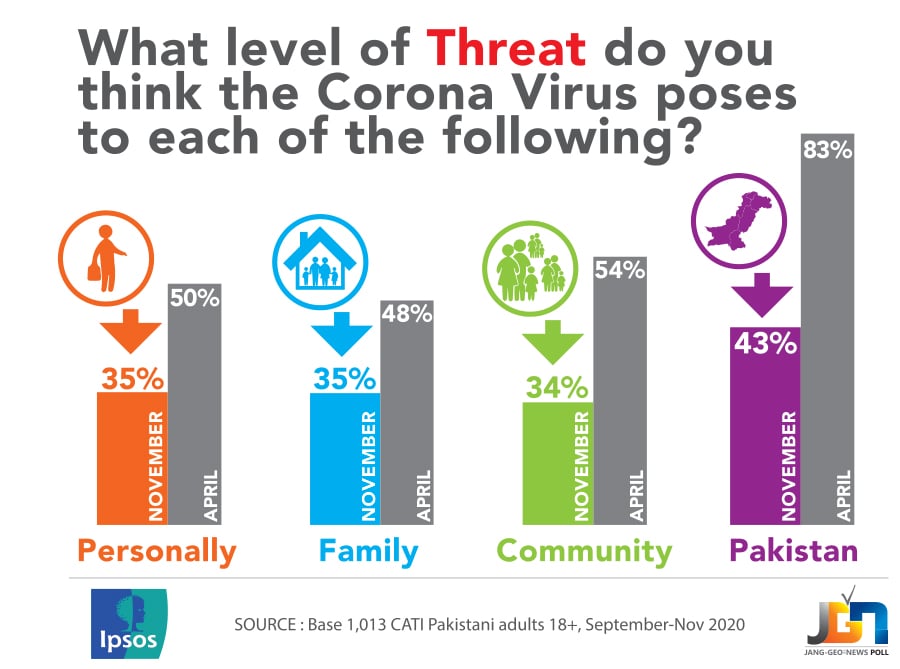Fewer parents comfortable sending children to school than two months ago: IPSOS survey
From 90% of parents comfortable with children going to school in September, only 51% are now alright with it
Despite the coronavirus pandemic raging in Pakistan, with a worryingly high number of new infections reported each day, 51% of parents say they are comfortable sending their children to school, a survey has revealed.
The IPSOS survey also found, however, that this number has dropped in November, from 90% in September, meaning fewer parents are now alright with letting their children go to school.
The survey sought responses through Computer Assisted Telephonic Interviews (CATI), taken from 1,013 Pakistani adults aged above 18, between September and November.
When the respondents were asked if they are comfortable getting a coronavirus vaccine, 62% responded positively, while 38% said they do not like the idea.
A majority of people — 56% — also feared a second coronavirus wave in Pakistan. This was a significant rise from September when only 35% feared another wave of the pandemic.
For the latest news regarding the pandemic, people said they trust the local television news channels the most, while Twitter and Whatsapp emerged as the least trusted sources.
Sixty-nine percent people preferred local news channels, 6% said they trust religious place, 5% favoured Facebook and the internet, and 4% said they trust their physician for accurate information.
Responding to a question on financial constraints caused by the pandemic, 83% respondents said that their income has reduced since the outbreak. This means four in every five households now have reduced income.
The majority of respondents — 88% — also reported being worried due to the price hike in commodities. However, 12% said they have no such worries.
Most people (49%) were of the view that the federal government is to blame for the rise in prices of commodities, followed by 17% who held the provincial governments responsible.
Some (15%) thought that the previous governments have played a role, while 8% thought an unknown mafia is behind the hike.
A few (5%) even blamed shopkeepers, while 3% blamed bureaucracy and 3% held the mill owners responsible.
Between April and November, significant drops were seen in the percentage of people perceiving a threat to various groups of society from the pandemic.
Whereas 50% people in April felt threatened on a personal level, only 35% in November said they feel a personal risk from the virus.
In April 48% people had reported perceiving a threat to their families, whereas in November this dropped to 35%.
Furthermore, 54% people in April said the coronavirus poses a threat to the community at large while 34% people said the community is at risk in November.
A greater threat to Pakistan in general was reported in April with 83% agreeing the country is at risk. In November, this reduced to 43%.
-
Security forces gun down 30 terrorists in multiple IBOs in KP: ISPR
-
MQM-P calls for new province in Sindh
-
US report validates Pakistan military edge over India: PM
-
Banned TTP poses serious threat to Pakistan security: UNSC panel
-
CM Afridi clarifies remarks on by-poll after ECP requests army deployment
-
Dubai sees 3.2m Pakistani passengers in 2025 as airport sets new milestone
-
Security forces kill 23 Indian proxy terrorists in KP's Kurram
-
Pakistan to construct island to boost oil exploration: report
